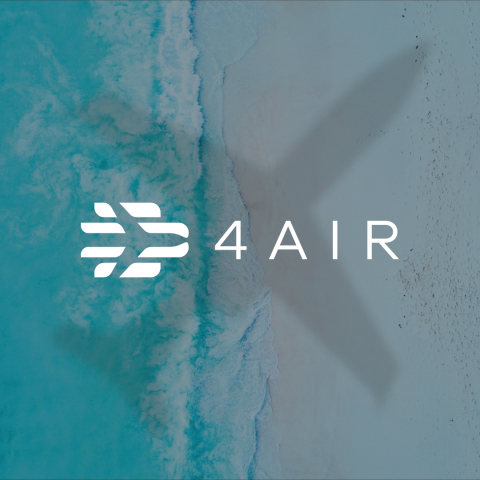4AIR Launches First Interactive Sustainable Aviation Fuel Map for Business Jets
4AIR Launches First Interactive Sustainable Aviation Fuel Map for Business Jets
- New interactive map developed and maintained by 4AIR shows where to find Sustainable Aviation Fuel regardless of who makes or markets it
- Informational map intended to spur use and expand availability of the climate-friendly fuel
- SAF Locations Verified by 4AIR
BOSTON--(BUSINESS WIRE)--4AIR, the first and only rating system focused on comprehensive sustainability in private aviation, today announced that it has launched an interactive map (https://www.4air.aero/saf-map) to show private jet owners and operators where to find Sustainable Aviation Fuel (SAF). Although SAF reduces emissions contributing to climate change, it can be hard to find because of limited distribution and fragmented marketing. 4AIR solves this problem with this map – the first aggregator of where a user of private aircraft can find SAF, regardless of the airport, fixed-base operator (FBO) or fuel provider.
“Sustainable Aviation Fuel is an efficient and effective way to reduce the impact private jets have on climate change,” said Kennedy Ricci, 4AIR’s president. “This is the single best way for aviators to find this climate-beneficial fuel. And, by making it easier to find SAF, we hope to promote its use and expand its availability.”
The map features nearly 20 verified SAF fuel locations with supply points geared towards business aviation. 4AIR excludes locations if they have uplifted SAF only once, maintain supply only for a particular customer or do not have gallons available for purchase to the business aviation community. Each active listing includes a street address, link to the FBO’s website and a contact telephone number for ease in reaching the fuel provider. The map will be updated continuously as new locations are verified or new announcements are made.
Sustainable Aviation Fuel is a “drop-in” fuel, meaning it has a similar chemical composition to fossil fuels, and therefore the same tailpipe emissions, but it can be pumped, stored and used within the existing fuel infrastructure. The hydrocarbons come from more sustainable sources such as used or waste cooking oils, tallow (waste animal fats), waste biomass and municipal solid waste (MSW). This results in a net reduction of emissions when compared to fossil jet fuel on a total life cycle basis. In addition, some emissions of sulfur oxides (SOx), particulate matter (PM) and nitrous oxides (NOx) may be reduced depending on the feedstock for SAF.
As direct uplift locations for SAF proliferate, 4AIR also can facilitate its benefits to private jet users under its program by assisting with SAF uplift documentation tracing to feedstock sustainability, offering accurate CORSIA-based emissions reduction calculations and compile other data necessary for a SAF claim.
“The future of sustainability within private aviation depends on the increasing demand and availability of SAF,” said Scott Cutshall, SVP of Development and Sustainability at Clay Lacy. “We’re excited for 4AIR’s interactive map to make it easier for operators to locate SAF as it rolls out at more and more of their destination FBOs, including Clay Lacy locations.”
The interactive SAF map is the latest example of how 4AIR is simplifying the ability of users of private aviation to make its use more environmentally friendly.
About 4AIR
4AIR is an industry pioneer offering sustainability solutions beyond just simple carbon neutrality. Its industry-first framework seeks to address climate impacts of all types and provides a simplified and verifiable path for private aviation industry participants to achieve meaningful aircraft emissions counteraction and reduction.
The 4AIR framework offers four levels, each with specific, science-based goals, independently verified results and progressively greater impacts on sustainability that make it easy for private aviation users to pursue sustainability through access to carbon markets, use of Sustainable Aviation Fuel, support for new technologies and other strategies.
All carbon credits through 4AIR are quantified and verified through the most respected and international leading bodies that issue and register credits, including the American Carbon Registry, Climate Action Reserve, Verified Carbon Standard (VERRA) and The Gold Standard. Additionally, end-of-year commitment audits are independently verified by third parties. 4AIR also serves the demand signal working groups with the World Economic Forum’s Clean Skies for Tomorrow Coalition.
For more information, visit us at www.4air.aero.
Contacts
Media Contact:
Sarah Churbuck
The Hubbell Group, Inc.
Mobile: (561) 289-6362
Email: schurbuck@hubbellgroup.com
